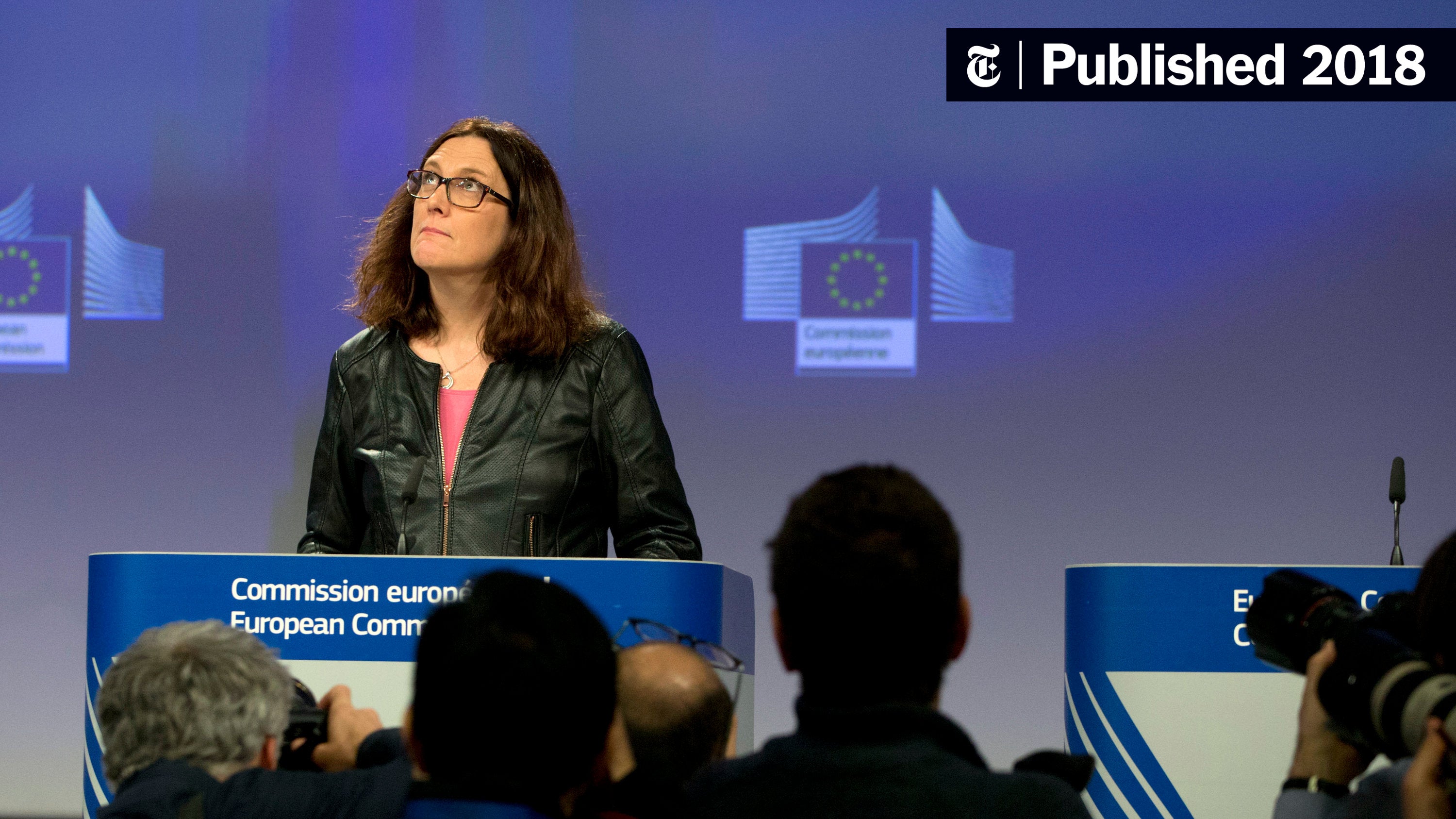Why Did Trump Attack European Trade? A Deep Dive Into His Policies

Table of Contents
"America First" Nationalism and the Belief in Unfair Trade Practices
The core philosophy of Trump's economic policy was "America First," a nationalist approach prioritizing domestic interests above international cooperation. This worldview profoundly impacted his trade policy, leading to a confrontational stance towards perceived unfair trade practices by other nations, particularly the European Union.
- Focus on Restoring American Manufacturing Jobs: A central tenet of "America First" was the promise to bring back manufacturing jobs lost to overseas competition. Trump argued that unfair trade practices, such as high tariffs on US agricultural products imposed by the EU, had decimated American industries.
- Allegations of Unfair Trade Practices by the EU: The Trump administration repeatedly accused the EU of employing protectionist measures that disadvantaged US businesses. These allegations fueled the narrative of unfair trade, justifying retaliatory tariffs. Examples include tariffs on steel and aluminum, and longstanding disputes in the agricultural sector.
- Emphasis on Bilateral Trade Agreements: Trump favored bilateral trade agreements over multilateral organizations like the World Trade Organization (WTO), believing that these organizations were biased against US interests and hampered his ability to negotiate favorable deals.
- Examples of Specific Trade Disputes: The Trump administration initiated numerous trade disputes with the EU, notably imposing tariffs on steel and aluminum imports, citing national security concerns. These actions triggered retaliatory tariffs from the EU, escalating trade tensions.
The perception of significant trade imbalances, with the US importing far more goods from Europe than it exported, further fueled the belief in unfair trade practices and justified the use of tariffs as a retaliatory measure. For example, in 2017, the US trade deficit with the EU was substantial, creating a fertile ground for the "America First" narrative.
Targeting Specific Industries and Sectors
Trump's trade attacks weren't indiscriminate; certain sectors bore the brunt of his policies. The steel, aluminum, and automobile industries, among others, were disproportionately targeted.
- Impact of Tariffs: Tariffs imposed by the Trump administration had significant consequences for businesses in both the US and Europe. US producers faced increased costs from retaliatory tariffs, while European businesses saw reduced access to the lucrative US market.
- Rationale for Targeting Specific Sectors: The rationale for targeting these sectors varied. National security concerns were frequently cited regarding steel and aluminum, while the automobile sector was a target due to persistent trade deficits.
- Political Considerations: The choice of target industries also involved political considerations. Targeting industries with significant employment in key states could sway voters and enhance Trump's political standing.
Case studies of specific businesses affected by these tariffs – both American companies struggling with increased costs and European companies losing access to US markets – vividly illustrate the real-world impact of Trump's trade policies. For instance, the impact on Harley Davidson, a prominent American motorcycle manufacturer, due to retaliatory EU tariffs, provides a compelling example.
Weakening International Institutions and Multilateralism
Trump's administration openly criticized international trade organizations like the WTO and the EU, viewing them as obstacles to achieving its "America First" agenda.
- Undermining Institutional Effectiveness: Trump's actions, such as blocking appointments to the WTO's appellate body, significantly undermined the effectiveness of these institutions in resolving trade disputes and enforcing rules.
- Long-Term Consequences: The weakening of these organizations has long-term consequences for global trade governance, potentially leading to a more fragmented and less predictable international trading system.
- Impact on Global Trade Governance: Trump's approach challenged the established norms of multilateralism, creating uncertainty and increasing the risk of trade wars.
This approach to international trade relations raises significant questions about the future of global cooperation and the stability of the international trading system. The implications for future international trade negotiations and agreements are far-reaching.
The Impact of Brexit on Trump's Trade Policy
Brexit significantly influenced Trump's approach to EU trade negotiations. The UK's departure from the EU presented both opportunities and challenges. Trump saw potential for a bilateral trade deal with the UK, separate from the EU, while the EU faced the challenge of navigating its relationship with a major trading partner while dealing with Trump's trade pressures. While there was some degree of alignment of interests between Trump and the UK government regarding trade with the EU, their goals often diverged, leading to complexities in navigating the post-Brexit landscape.
Conclusion
Trump's aggressive approach to European trade stemmed from a combination of "America First" nationalism, perceived unfair trade practices, and a desire to renegotiate existing trade agreements. This approach had a significant impact on both US and European economies, disrupting supply chains, increasing costs for businesses, and contributing to global trade tensions. His actions also weakened international institutions and challenged the norms of multilateralism, leaving lasting consequences for the global trading system. Understanding the complexities of Trump's European trade policies is crucial for navigating the current international economic landscape. Further research into the long-term effects of these policies, and analysis of alternative approaches to international trade, is essential. Continue to explore the topic of Trump's European trade policies and their lasting impact on global trade relations.

Featured Posts
-
 Datavorser Relx Sterke Groei Ondanks Economische Tegenwind Dankzij Ai
May 25, 2025
Datavorser Relx Sterke Groei Ondanks Economische Tegenwind Dankzij Ai
May 25, 2025 -
 The Railway Station Man A Day In The Life
May 25, 2025
The Railway Station Man A Day In The Life
May 25, 2025 -
 Doert Oenemli Oyuncuyu Kapsayan Sorusturma Kuluebuen Gelecegi Tehlikede Mi
May 25, 2025
Doert Oenemli Oyuncuyu Kapsayan Sorusturma Kuluebuen Gelecegi Tehlikede Mi
May 25, 2025 -
 Monako Parisi I Nea Vathmologia Tis Euroleague
May 25, 2025
Monako Parisi I Nea Vathmologia Tis Euroleague
May 25, 2025 -
 The Nvidia Rtx 5060 Launch Lessons For Gamers And Reviewers
May 25, 2025
The Nvidia Rtx 5060 Launch Lessons For Gamers And Reviewers
May 25, 2025
